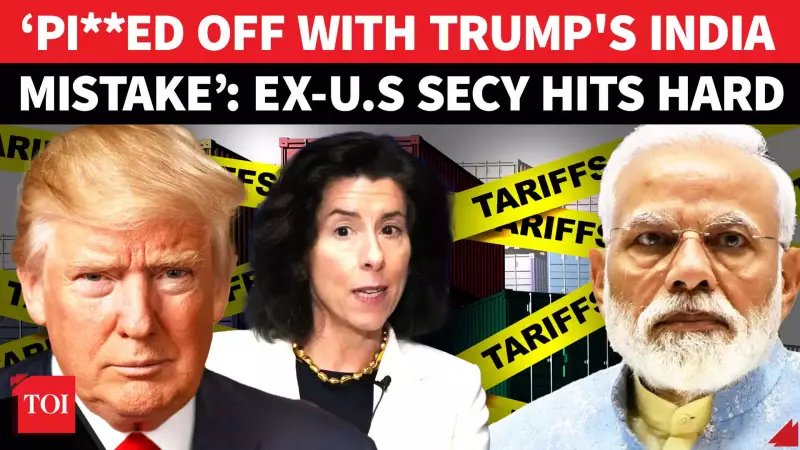
In a striking condemnation that's sending shockwaves through political circles, a former top US official has launched a blistering attack on Donald Trump's alliance-alienating policies, labeling them a potential "disaster" for America's global standing.
Richard Haas, the respected former President of the Council on Foreign Relations and veteran diplomat, didn't mince words in his assessment of Trump's approach to international relations. The warning comes at a critical juncture as Trump positions himself for another potential presidential run.
The Isolation Warning
Haas articulated a grave concern that's been quietly discussed in diplomatic corridors: Trump's foreign policy trajectory could leave the United States dangerously isolated. "We will be isolated if we continue down this path," Haas emphasized, pointing to the former president's tendency to alienate traditional allies while cozying up to authoritarian regimes.
Diplomatic Fallout Analysis
The former diplomat outlined several key areas where Trump's policies have caused significant damage:
- Strained NATO Relationships: Trump's repeated threats to abandon the alliance have created lasting trust issues with European partners
- Trade War Fallout: Tariff battles with traditional allies have economic and diplomatic consequences
- Withdrawal from International Agreements: Pulling out of climate accords and other multilateral deals has diminished US influence
- Undermining Democratic Values: Embracing authoritarian leaders while criticizing democratic allies sends conflicting messages
Global Power Shift Implications
Haas warned that this isolationist approach creates a vacuum that other global powers are eager to fill. "When America steps back, other nations step forward," he noted, suggesting that China and Russia stand to benefit most from US disengagement from international leadership roles.
The timing of this critique is particularly significant as world leaders assess America's reliability as a partner. With multiple global crises unfolding simultaneously, the question of US commitment to multilateral solutions becomes increasingly urgent.
Haas's comments represent a growing concern among foreign policy experts who worry that the damage to America's international reputation might outlast any single administration. The fundamental question remains: Can the world trust America to be a consistent partner, or has the uncertainty become the new normal?





